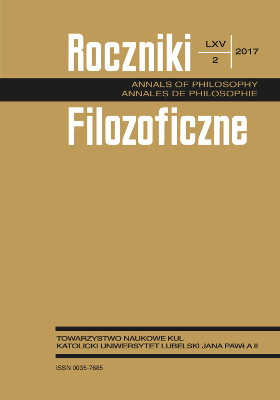Locke and Leibniz on Perception
Locke and Leibniz on Perception
Author(s): Adam GrzelińskiSubject(s): Philosophy, History of Philosophy, Early Modern Philosophy
Published by: Towarzystwo Naukowe KUL & Katolicki Uniwersytet Lubelski Jana Pawła II
Keywords: Leibniz; Locke; perception; idealism; empiricism; early modern philosophy
Summary/Abstract: In his critique of the Lockean concept of perception as presented in Nouveaux essais, Leibniz reproaches Locke for neglecting the role of minute perceptions in experience and reducing all mental operations to the sphere of consciousness. However, the critique seems to be the result of the differences of their philosophical standpoints: Leibniz’s idealistic metaphysics, and Locke’s commonsensical empiricism rather than of the different understanding of perception itself. The descriptions of the process of perceiving provided by them seem to be surprisingly similar, whilst the difference between their stances is for the most part no more than terminological. The dispute is rooted in their different approaches to the role of psychological investigations, which for Locke are autonomous and quite independent from the claims of metaphysics.
Journal: Roczniki Filozoficzne
- Issue Year: 65/2017
- Issue No: 2
- Page Range: 167-183
- Page Count: 17
- Language: English

